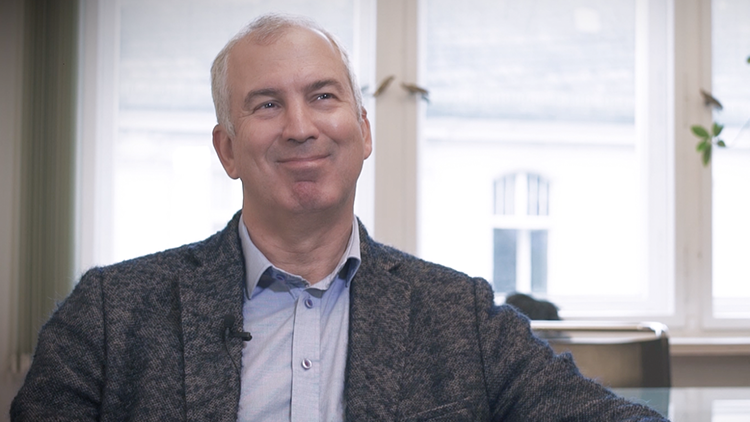Hoping to expand at high speed? Don’t hurry to give up equity – VC isn’t your only option…
Between 2002 and 2011, there were 450-900 venture capital (VC) deals done each year in Europe with companies that subsequently floated or underwent a trade sale. The figures explain why many entrepreneurs with fast-growth ambitions – particularly in technology – see giving up equity in return for cash as their chosen funding option.
While VC has its benefits, it’s not the only option for rapidly expanding firms. Super-growth tech companies such as PlentyofFish, Gawker and Tableau Software all made it through their first few years without taking any VC.
In this article, we explore the merits of VC, debt financing, and how each funding option can support businesses with big ambitions.
The importance of VC
VC is more common in the tech industry than any other. A British Venture Capital Association report found that 40% of VC deals in the US and Europe are done with internet and computer businesses, followed by biotech and healthcare at around 20%.
The typical lifecycle of tech businesses explains their taste for VC. “Tech companies tend to have a longer lead time before they start generating profits,” says Sean Duffy, Head of Technology, Media and Telecoms, Corporate Banking, Barclays. “You’ve got to remember that Twitter has only just turned a profit.”
These sorts of businesses need capital to really get started, and often lots of it. “VC is really for financing the early stages of growth,” says Duffy. “You can put that VC money into research and development or product development while the customer proposition is still being proven. Once the customer proposition is proven, acquiring clients is key – look at the speed of internationalisation of companies like Shazam, Hailo and Spotify.” Acquiring market share at pace can be expensive, which is another reason for the prevalence of VC in fast growth tech companies.
Risk, reward, management and ownership
Those years of significant investment before profit generation are obviously high-risk for the investor. VC firms tend to work on the ratio that for every 10 early-stage businesses they invest in, only one or two will become superstar businesses,three or four will break even, and the other three or four will fail. This high risk approach explains why VC firms take equity stakes – when the investment is successful the venture capitalist reaps significant financial reward, which is necessary as those profits pay for all the losses they incurred by backing businesses that failed. The good VC firms of course make more profits than losses, and sometimes the more risky the idea, the more potential the investment has.
The idea of giving away equity may put some founders off accepting VC altogether, if they are keen to maintain their absolute freedoms in running the business and maximise the personal upside of success. This is countered by the fact that 100% of nothing is still nothing. Duffy says that “obviously VC will take more control of a business than a bank as they are buying a shareholding in it”. The managerial involvement of VCs will appeal to some entrepreneurs as they can bring helpful support, but it will deter others – the important thing is ensuring the founder’s vision for the business is aligned to the funder’s.
So how does VC weigh up against debt as a financing option?
Debt vs VC
One of the most attractive attributes of debt for entrepreneurs is that the bank is more removed from the day-to-day running of the company. Although bank lending has certain covenants around debt servicing and leverage according to the structure of each agreement, bank debt can support growth ambitions without having any particular control over the way the entrepreneur runs the business.
“Debt is designed for areas of less risk and is priced accordingly – making it cheaper than other forms of finance,” Duffy says. “Bank debt and VC are not equivalent to each other. Whilst there are areas of overlap, they are often solutions to different challenges, but can work together to give a more efficient capital structure with the more expensive VC money being put to best use in research and development, or sales and marketing.”
Right funding at the right time
Online pet supplies and medicines retailer MedicAnimal was founded in 2007, and is today closing in on the £100m-turnover mark. Co-founder Ivan Retzignac says: “We began how most start-ups begin by asking friends and family for money, and then started to outgrow or outpace the growth that we expected. We very quickly turned to VC, and after a while it became obvious that certain elements of our business were better served by a different type of financing.” That’s when debt financing came into play.
The key to securing debt financing lies in establishing a profit-generative aspect of your business. “If a business is not making money, they can’t service debt,” Duffy says. “So it is important to establish your sources of revenue – and discuss the business plan early with your bank.”
Planning for growth
Ultimately, it’s about understanding what type of financing suits your business for different circumstances and at different stages. Duffy explains: “You might use VC at the beginning, and prove that a part of the business is making money: proving the customer proposition, say, and then applying for debt finance because you’re going into new geographies. Debt financing can work once the business can show how it’s going to repay the bank loan.”
“It’s always worth establishing a relationship with a potential future lender. Keep your bank involved with your growth journey and share your plans where possible, as you can leverage off their experience with similar clients to support your requirements”, says Duffy. “Ultimately, our clients are the most interesting part of our business, and our role is to support their growth ambitions. We have a technology aligned team, but there are still things coming out today that are quite eye-opening – we’re speaking to really dynamic companies”.
One of these dynamic companies might well become the UK’s next billion pound company. With the right planning, it might just be yours.


